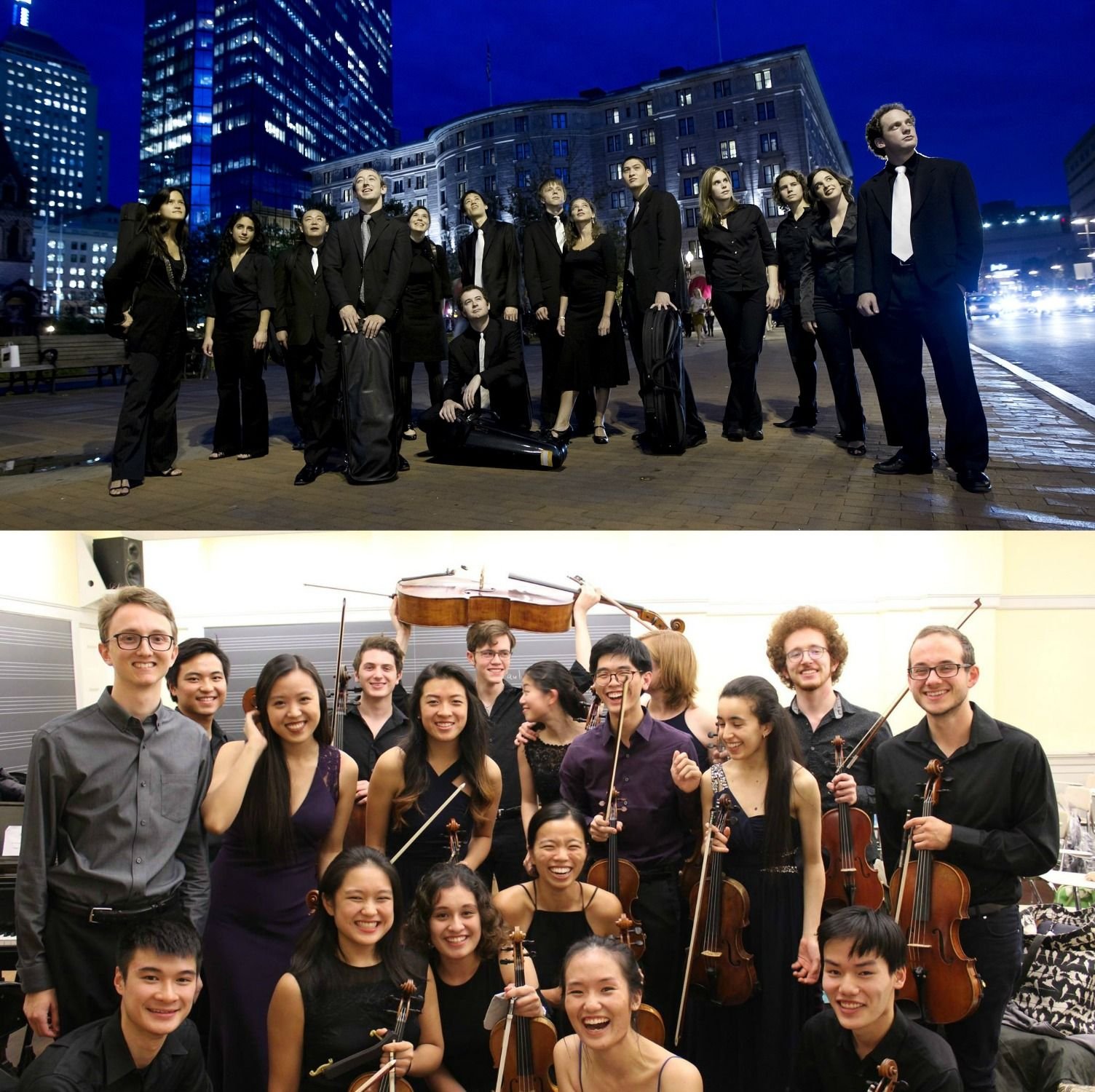Strauss' Metamorphosen: A Conversation with A Far Cry and Brattle Street Chamber Players

Photos courtesy of A Far Cry and Brattle Street Chamber Players
Listen
In the next week, two Boston-area string orchestras will be performing Strauss’ Metamorphosen. A Far Cry will be performing the Strauss on Friday, March 30th, and the Brattle Street Chamber Players will be performing on Thursday, April 5th. WHRB Producer Henry Shreffler sat down with A Far Cry members Sarah Darling and Rafael Popper-Keizer, along with Brattle members John Lim and Cecilia Yao, to hear their different experiences with the Strauss. Listen below as they discuss their upcoming programs, or read selected excerpts from the conversation!
Shreffler: One big difference in the performances of these two groups is that A Far Cry will be performing the original 23-part version, whereas Brattle will be performing the reconstruction of the earlier version of the piece in the septet form. Could you tell me about the version of the piece that you’re performing, Cecilia?
Yao: Yeah! So just to start, our group is made up of 17 players. The reduced version of Metamorphosen was written for seven parts, and we’ve doubled some of these parts. I think it’s interesting because something we’ve worked on a lot is pacing and the way that Strauss worked with meter: putting duple against triple, almost everywhere… and the different emphases on beats. I feel that was one of the biggest challenges for us. I would be even more curious to know how that works when [in the 23-part version] there are 10 violin parts: if you’ve found a way to rehearse that and communicate with so many specifically individualized parts.
Popper-Keizer: Yeah, that’s a great question. We had our first full rehearsal today. I think most, but certainly not all members of the group, have played it before. For me, for example, this is my first time playing this without conductor, which is really thrilling and liberating and exciting. I was in charge of the rehearsal flow today, which was exciting and a little bit intimidating. And it was amazing to have our first read-through and feel the things that weren’t quite working yet, but at the same time, so many things that were. And with so many people playing closely interdependent parts, you can’t really, from your own vantage point, hear everything that’s going on, so you have to target your listening very strategically. For us, the process of rehearsal, in large part, is doing that. We had specific rehearsal techniques here and there, but even just repeating sections a couple times: people would naturally glom onto what makes the most sense, in terms of how to follow the musical thread, even from a logistics standpoint.
Darling: It’s so funny that we’re approaching this piece from these two different directions. In a way, our job, with 23 individual voices on stage, is to streamline, to simplify, and to make it coherent. And I imagine for you guys, taking the septet version and then bumping it up with more player – in a way, your job is to bring out the complexity as much as you possibly can.
Yao: That’s something that I was so curious about, with 7 parts versus 23. Even with the seven parts, we felt every part at every moment had some rhythmic or melodic point of interest, something that we wanted brought out. That was a challenge for us: how do we allow certain things to come out? Even as I listen to recordings sometimes, I find that every time, I’m listening to a different thread, and every time, I hear something new at a different moment according to everyone’s interpretation… Sometimes, after playing it a couple times, different things will happen in each scenario, and each one of them has some musical value. I think that was the way that he wrote it, and it’s been really striking for me.
Darling: I feel like it’s an incredible gift that he gave us. You can look at it from any angle, and sure, you can simplify it and come up with a narrative structure. But as you say, that narrative structure, if you just change your perspective slightly, looks so incredibly different.
Henry Shreffler is a Producer for WHRB Classical. A Far Cry will be performing on Friday, March 30th, at NEC’s Jordan Hall. The Brattle Street Chamber Players will be performing on Thursday, April 5th, at Harvard University’s Paine Hall. For more information, visit their websites at afarcry.org and brattlestreetchamberplayers.com.
You can hear classical music on WHRB on Mondays-Fridays 1pm-10 pm, Saturdays 1pm-9pm, and Sundays 2pm-midnight.